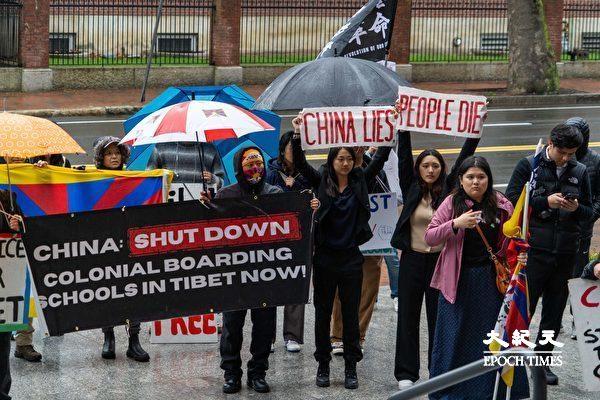The news of North Korean leader Kim Jong Il’s death trigged enthusiastic discussion on the Internet in China, with many commentators mocking the Chinese regime’s official line on North Korea, expressing their pity for North Koreans, and with some Internet commentators even announcing their celebration at the news.
People’s Daily, a mouthpiece of the Chinese Communist Party (CCP), published Chinese Foreign Minister Yang Jiechi’s message to North Korea, expressing the CCP “deepest grief and sincerest condolences,” and calling Kim a “great leader” and “Chinese people’s intimate friend.”
Yang’s message was ridiculed by some netizens. Beijing scholar Wu Zuolai wrote on his microblog, “Chinese people will not take a dictator as friend, let alone miss an autocrat who put North Korean people in deep misery and suffering.”
He added: “I solemnly declare that Kim Jong-Il is not my friend. He has killed and harmed North Korean citizens and is my enemy.”
Cui from Shenzhen also “solemnly declared” on his microblog that Kim is not his intimate friend either, and called for the media to just say someone like Kim is just a close friend of “some” Chinese people.
Another topic under discussion on Sina Weibo is photos showing groups of Pyongyang residents on their knees crying, and factory workers and students dressed in uniforms paying silent tribute to the deceased despot. Many netizens said these scenes are reminiscent of the death of Mao Zedong in 1976.
Now 72-year-old former deputy editor-in-chief of “New Observer” magazine Zheng Zhongbing recalled that after Mao’s death, every work unit had to hold a memorial service and every one had to vow their eternal loyalty to Mao’s ideology. “Years of receiving education in worshiping and blindly believing an idol and treating Mao like a god—we had been through that during the Cultural Revolution,” Zheng told Voice of America (VOA).
Zheng was imprisoned twice during the Cultural Revolution. He said that Kim’s death is indeed very similar to Mao’s death: The Cultural Revolution lasted a long period of time and left the whole country in dire poverty, just like Kim’s fascist rule in North Korea had also devastated his country.
Some Chinese websites had shut down the comments function on their articles, to prevent netizens commenting on Kim’s death, an indication that the CCP is afraid that Chinese people will cheer on Kim’s death, according to the Beijing-based economist Qi Yanchen.
The report by state media CCTV also showed scenes of North Koreans in mourning and said they were “immersed in enormous grief,” a comment that was also scoffed at by Chinese netizens.
One wrote: “Who knows it was not tears of joy?”
Another said: “No one doubts their sincere grief, but it looks so ridiculous in our eyes. It is just like in those days [of the Cultural Revolution]. History is surprisingly similar.”
And yet another: “What can mend human nature when it has been distorted by authoritarianism and violence?”
One netizen struck a different note, instead declaring his celebration of the death: “Kim Jong Il is dead. To express my deepest mourning, I went to eat the most expensive hot pot and drank a cup of Maotai wine. But it’s not enough, so I decide to sing till 3 a.m. in the morning.”
Read the original Chinese article.



